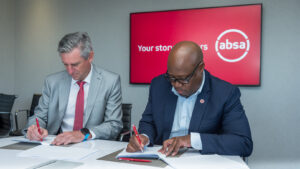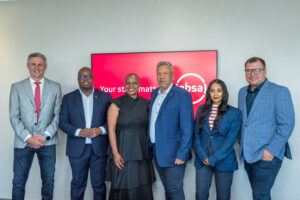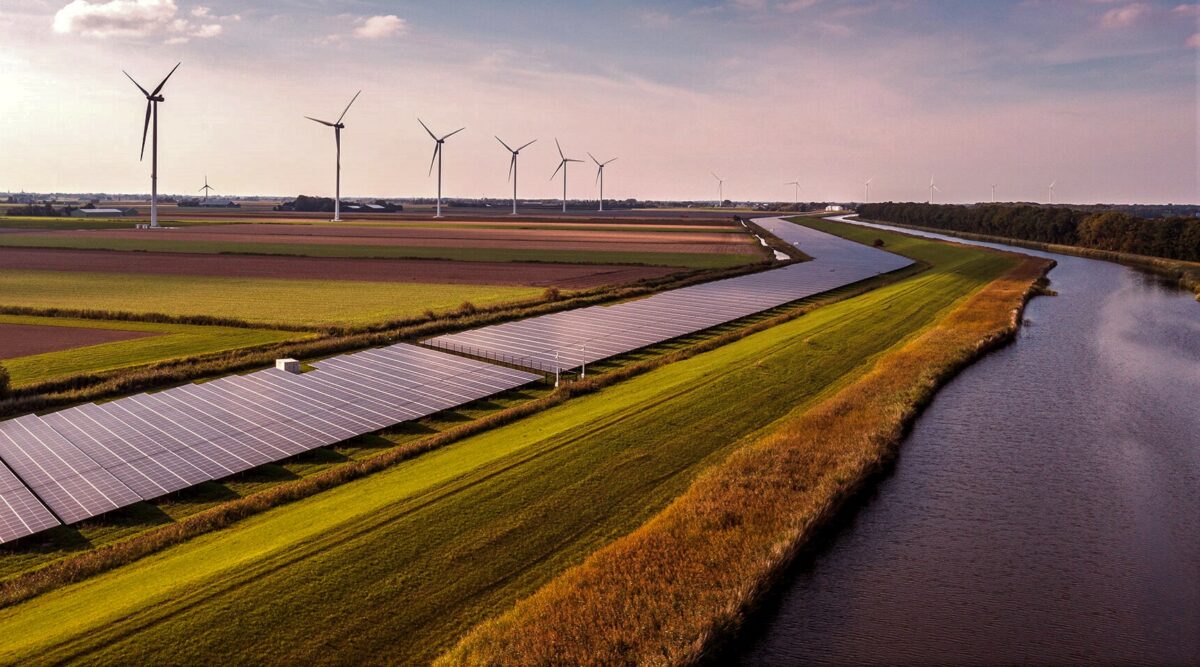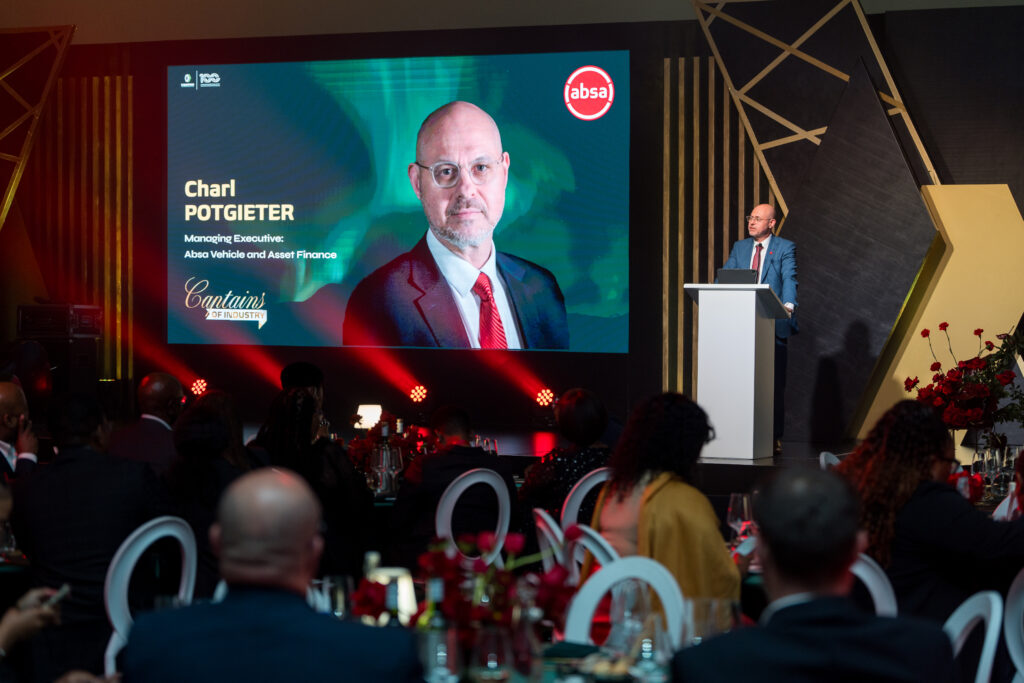Punki Modise – Group Chief Strategy and Sustainability Officer
SA’s energy crisis remains one of the most significant barriers to decarbonisation. The EU’s Carbon Border Adjustment Mechanism (CBAM), due to be fully operational by 2026, represents a major shift in global trade and climate policy. Designed to impose a carbon tariff on imports of carbon-intensive goods such as steel, cement, aluminium and electricity, it aims to align with the EU’s broader Green Deal. The CBAM will effectively create a “carbon price” for products entering the EU market, incentivising exporters to reduce their carbon footprint.
For countries like SA, where high-emission industries play a significant role in the economy, the implications of the CBAM are particularly profound. Sectors such as aluminium, steel and cement are expected to experience export declines, with predictions indicating that aluminium exports to the EU could fall by 13.9%, iron and steel by 8.2%, and cement by 3.1%.
As the CBAM nears implementation, SA finds itself at a critical juncture. The challenge is twofold: the country must decarbonise its key industries to align with international standards while mitigating the economic and social effects that this transition will inevitably bring. The broader question is how SA will navigate these pressures and what role stakeholders — including financial institutions, the government and private industries — will play in ensuring the country’s decarbonisation journey is just and sustainable. Role of financial institutions: supporting the transition Financial institutions are central to SA’s decarbonisation efforts. They can offer crucial capital and advisory services to help businesses transition to low-carbon technologies. The high costs of adapting to CBAM’s carbon tariffs can be alleviated through financial support, particularly for industries most vulnerable to the new regulations. Financial institutions are well-positioned to steer industries through the turbulence caused by CBAM, employing a strategy based on three key pillars: 1. Financing low-carbon technologies: financial institutions have a critical role in offering sustainable financing solutions, such as green loans and sustainability-linked loans, which enable businesses to invest in renewable energy, energy efficiency improvements and carbon capture technologies. These solutions not only help industries meet their emissions reduction targets. but also position them for future growth in a low-carbon economy. By facilitating investments in greener technologies, financial institutions help industries remain competitive under the CBAM regime. 2. Climate risk assessments: Financial institutions are integrating climate risk assessments into their lending strategies to help clients, especially those in high-emission sectors, understand their exposure to climate-related risks. This foresight ensures that industries are not just prepared for the immediate impacts of CBAM but are also resilient in the long term. These assessments are increasingly crucial as businesses confront the dual pressures of complying with international carbon pricing policies and transitioning to cleaner technologies domestically. 3. Balancing decarbonisation with job preservation: One of the most significant challenges in SA’s transition is ensuring that job losses are minimised. With a high unemployment rate, SA cannot afford to lose jobs in key industries, even as it moves towards a greener economy. Financial institutions can play a vital role in ensuring that the transition is both socially and economically inclusive by supporting industries in their green transition while maintaining employment. Negotiating fair terms In addition to financial solutions, SA’s response to CBAM must include a strong diplomatic effort to negotiate fair terms with the EU. Xolelwa Mlumbi-Peter, SA’s ambassador to the World Trade Organisation (WTO), underscored the concerns raised by SA and other African nations about the CBAM’s potential disproportionate impact on developing economies. While global climate action is critical, the mechanism risks placing African countries — which have contributed the least to global emissions — at a competitive disadvantage. Mlumbi-Peter emphasised that climate change measures should reflect the principle of common but differentiated responsibilities, as outlined in the Paris Agreement. Developing countries like SA, which are still reliant on high-emission industries and lack the financial and technological resources to rapidly decarbonise, require more time and support to transition. The EU’s carbon pricing system, which could lead to an estimated $1.5bn annual loss in SA exports, particularly in sectors like steel and aluminium, poses significant risks to trade, employment, and overall competitiveness.
To mitigate these risks, SA’s diplomatic efforts must focus on securing extended compliance timelines and exemptions for developing nations. This includes advocating for increased climate finance and technology transfers from developed countries, ensuring that the economic burden of decarbonisation is shared more equitably. Mlumbi-Peter’s call for a more inclusive, consultative approach to international climate policy, particularly for mechanisms like CBAM, is crucial in ensuring that SA’s transition is fair and sustainable.
Balancing technological innovation with socioeconomic realities
The transition to a low-carbon economy is not just a financial and diplomatic challenge — it also requires significant technological innovation. As noted by Márcia de Oliveira Ramos Furlan, principal specialist at ArcelorMittal SA, while companies like ArcelorMittal are committed to decarbonisation, there are substantial technological barriers to overcome. For instance, the SA steel industry still relies heavily on blast furnace-based production, which plays a critical role in generating the scrap metal needed for future lower-emission steel production methods. However, transitioning to cleaner production methods is hindered by the high costs and limited availability of affordable hydrogen and carbon capture technologies. Without adequate financial backing — comparable to the subsidies and grants offered in other regions such as the EU, US and Canada — SA risks falling behind in its decarbonisation efforts. De Oliveira Ramos Furlan emphasised the need for policies that align with SA’s socioeconomic realities, taking into account the country’s high unemployment rate, poverty and inequality. The transition to a lowcarbon economy must be just, ensuring that vulnerable communities are not disproportionately affected by carbon pricing mechanisms such as CBAM. Saliem Fakir, executive director at the African Climate Foundation, pointed out that EU firms operating in SA’s high-carbon industries should have a say in how CBAM is applied, as it affects both their profitability and their future investments in the country. The unilateral nature of CBAM could hinder Africa’s industrial growth and trade, making it essential for SA to align its decarbonisation strategies with international climate policies while safeguarding its economic interests.
Addressing SA’s energy and infrastructure gaps
SA’s energy crisis remains one of the most significant barriers to decarbonisation. Fakir noted that while the country is making strides in its green transition, critical energy and infrastructure gaps need urgent attention. The country’s unreliable electricity supply, outdated grid infrastructure and high energy costs pose substantial challenges to integrating renewable energy sources such as solar and wind into the grid. Addressing these gaps will require significant investment in grid modernisation, energy storage solutions and distribution infrastructure to manage the intermittent nature of renewable power and ensure energy security. To mobilise the necessary investments for both the energy sector and the broader decarbonisation agenda, strong public-private partnerships are essential. Financial institutions can play a pivotal role in bridging this gap by offering long-term funding and incentivising green projects through innovative financial instruments such as green bonds. Without these partnerships, the financing needed to support renewable energy projects and green infrastructure will remain out of reach for many businesses and communities. In conclusion, the EU’s CBAM presents SA with a critical opportunity to rethink its decarbonisation strategy in alignment with international climate policies. However, the path forward must be carefully navigated to ensure that the country’s economic and social fabric remains intact.
By adopting a collective approach that involves financial institutions, government and industries, SA can accelerate the transition to a low-carbon economy while mitigating the impacts on jobs and trade. The success of this transition hinges on investments in low-carbon technologies, robust climate risk assessments, and strong publicprivate partnerships. Additionally, diplomatic efforts must continue to negotiate fair terms for developing nations, securing the necessary climate finance and technology transfers. As SA moves towards a greener future, a holistic strategy — one that balances environmental imperatives with socioeconomic realities — will be crucial in ensuring that the country emerges more resilient, competitive, and aligned with global sustainability goals. This is not just a matter of compliance but an opportunity to position SA as a leader in the global climate agenda.
This article was first published on Business Day on 15 November 2024


.png)
.png)
.png)
.png)
.png)
.png)
.png)

.png)
.png)




















